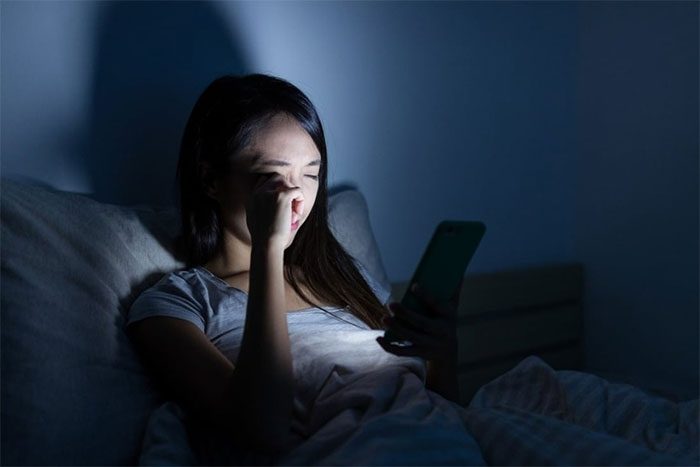Hormonal changes related to reproduction and menopause cause women to experience more sleep issues compared to men.
According to a recent survey by the National Sleep Foundation, many women have more difficulty sleeping than men. The reason is that sleep disturbances in women begin at puberty and continue throughout adulthood due to biological and psychological factors, according to Fiona Baker, Director of the Human Sleep Research Program at SRI International, a nonprofit research institute in California.
Baker notes that throughout their reproductive years, hormonal fluctuations during the menstrual cycle can lead to mood changes and physical symptoms such as cramps, bloating, and breast tenderness, all of which can disrupt sleep.

Women are more prone to sleep issues due to hormonal changes. (Photo: Handout).
During pregnancy, symptoms such as nausea, frequent urination, anxiety, and general discomfort, depending on the trimester, can also cause sleep disturbances, according to Shelby Harris, a neurologist and psychologist at Albert Einstein College of Medicine (USA).
After that, women’s sleep is disrupted during the postpartum period. This condition can persist for mothers even when their children have reached the age of sleeping through the night, as the brain remains affected by the state of alertness and quick response developed after giving birth, Harris explains.
Hormones continue to affect sleep in the years leading up to and following menopause. Baker states that up to 80% of women begin to experience hot flashes during the perimenopausal phase, approximately four years before menopause, and this condition can last for several years. For about 20% of women, these hot flashes occur frequently and intensely enough to disrupt sleep.
Postmenopausal women are also at a higher risk of developing sleep apnea, which occurs when the muscles of the airway relax and temporarily obstruct breathing, leading to frequent awakenings at night. “Weight gain related to menopause and aging can also contribute to sleep apnea, along with age-related changes in muscle tone and general weight redistribution,” Baker explains.
Women also have a higher risk of developing certain mental health conditions, such as anxiety and depression, which can exacerbate sleep problems. According to a Gallup survey published in May, the rate of women reporting they are currently or have been treated for depression is more than double that of men. The U.S. Department of Health and Human Services states that women are more than twice as likely to be diagnosed with anxiety disorders compared to men.
“The most important thing is to acknowledge the problem and not suffer in silence,” Harris recommends. The expert adds that there are measures to help improve sleep and reduce symptoms of depression, such as identifying and reframing negative thought patterns, tracking sleep, and adjusting bedtime.
Meanwhile, Baker states that hormone replacement therapy, which supplements the hormones lost during menopause, can treat hot flashes and improve sleep. “However, it should only be used at the lowest effective dose for the shortest duration,” she cautions, as hormone treatment can come with risks.
Harris notes that signs indicating that sleep difficulties have become pathological and require consultation with a doctor include trouble falling asleep, not sleeping deeply, waking up too early, or feeling that sleep is not refreshing.




















































